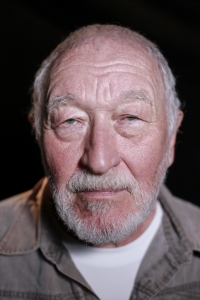PhDr. František Šebej , CSc.
* 1947
-
"Then was persuaded, to at last run for the Federal Assembly. So I thought, alright, I'll go there and see. But it was for two years and I didn't even want to stay there for two years. And then I found myself in "big politics." My father died on the day I was supposed to join the government. It wasn't unexpected, he was old and sick, so I came to the Federal Assembly after a funeral several days late and became chairman of the Foreign Committee of the House of Nations. That's how the authorities decided, probably because I was one of those who could speak English. "
-
"As the Russians withdrew from our country, I remember that I told the journalists that it was now time for Czechoslovakia to join the North Atlantic Alliance. And at that time I did not find much understanding, almost all of them were shocked, even Vaclav Havel, whom I liked and respected, believed that such times were behind us and we no longer need military alliances. It was an instinctive thought, which sparkled in my mind, the Russian troops might have left, but the imperial instincts of the Russian ruling elite certainly had not disappeared. In the meantime, the Soviet Union collapsed and Warsaw Pact was no longer valid. I will say it retrospectively, but I only had the feeling of closure, of the final gong, that the era of the Iron Curtain, era of being on the wrong side of the political struggle, in 2004, when we enter the North Atlantic Alliance."
-
"It is important to realize that my whole conscious life - that happened when I was 42 - I was persuaded it was a border zone, where you would be shot upon entering. Where there were watchtowers, dogs, machine guns, and barbed wires .After 30 years have passed, and so far, when I manage to cross the border, I am also aware of it when I travel by car, but especially on foot when I walk along the Danube and go up the side of the Danube close to Petrzalka up to the Laffranconi bridge about another kilometer and a half or two more, when I reach the Austrian border and I can still continue... I can walk through the forest. I have such feeling always when I tell my dog, let's go to Austria. We are enjoying it. I believe that the sense of liberation associated with the fall of Iron Curtain cannot be sufficiently conveyed to the people who were born after 89, or who were just children at that time."
-
Celé nahrávky
-
28.12.2019
(audio)
délka: 01:15:50
Celé nahrávky jsou k dispozici pouze pro přihlášené uživatele.
Scientist, karatist, politician, witness of fall of communist regime, participated on formation of democracy in Slovakia
František Šebej was born on May 11, 1947 in Bratislava. In 1966, he graduated from the high-school electrical engineering in Bratislava. Between 1966 and 1971, he studied at the Faculty of Arts, Comenius University in Bratislava, major psychology. After graduation he worked in psychological research at the Department of Neurosurgery at the Faculty of Medicine, Comenius University. At the same time he was the founder of the Karate Club in Slovakia, he was an active wrestler and instructor of Okinawan Karate. After the Velvet Revolution in November 1989, he joined the movement Public Against Violence. From 1990 to 1992, he served as chairman of the Foreign Committee of the House of Nations of the Federal Assembly. After the establishment of the Slovak Republic, he continued to be active in politics and was elected several times to the Slovak Parliament.
